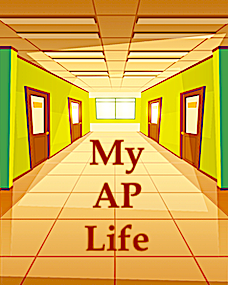Reflection Can Help Us Revive Our Best Selves
A MiddleWeb Blog

As educators we are taught that reflection is an important part of our professional growth. This year is really no different. The only exception may be that many of us feel like we’ve reached a point of burnout earlier in the year than normal and now’s the time to add self-care to our reflection routine (if we haven’t already).
If we’re administrators, we should take this time to reflect on the choices we’ve made and the goals we’ve pursued so far and to make decisions about what comes next. We also need to make sure that we are doing those little things that bring us joy and relaxation.
This year, instead of just doing my reflection mentally, I plan to be a bit more intentional. First, I plan to write down what’s going through my mind as I reflect – what I feel went well, what I think I need to tweak a bit, and what I plan to throw out because it just wasn’t working.
And second, I plan to really and truly enjoy some self-care, something I’ve been neglecting so far in this most challenging of school years in my memory (and probably yours).
Intentional Reflection
So many self-help books recommend writing your goals, writing your intentions, and writing your reflections. It’s not a practice that I generally follow (surprising, I know, since I am an aspiring writer). Yet I can see the value in writing down goals, intentions, and reflections. It gives us something concrete to refer back to when we need to remember the “why” behind our actions.
Unfortunately, because I am an internalizer by nature, I have to be more intentional about writing my mid-year reflections. I will have to intentionally carve out some time during this break to really dig deep. Working out what I think went well and then what didn’t go so well first will not only help me decide what I want to revamp for next semester, but will also help me create goals and action steps for the rest of the year.
Going forward, throughout second semester and when the school year ends, this will allow me to revisit my “why” and make sure that what I am doing or plan to do aligns with my philosophy of education and my beliefs about teaching and learning.
Is this something you plan to do, too? In a time when our educator lives are full of uncertainty and contradiction, we’ll never have a stronger motivation.
Self-Care
When I googled the words “self care,” I was amazed at the number of recommendations that popped up in my search bar. Everything from self-care quotes and tips to self-care plans and wheels.
But what really struck me was the second definition I came across – that self-care is “the practice of taking an active role in protecting one’s own well-being and happiness, in particular during periods of stress.” The idea of “taking an active role in protecting [my] own well-being and happiness” made me immediately reflect more deeply on what I had been doing so far this year to protect myself. And I was not happy with what I found.
This year has been particularly hard for all of us. COVID and the chaos that was created as we tried to protect ourselves and others from the virus caused high stress situations for not only our students and staff, but for us administrators as well. And as we often do as administrators, most of us simply kept driving on, pushing down our personal feelings, putting our students’ and staff well-being ahead of our own.
Unfortunately, that left many of us feeling overwhelmed, burnt out, and on edge before we even reached Thanksgiving break.
Since self-care is so important to our mental well-being, we must create more intentionality in our self-care habits. So, during this winter break, I plan to be more intentional about doing those few things that truly bring me joy — running at the park, reading a good fantasy story, and spending time baking with my daughters.
My hope is that by creating true intentionality in my self-care routines, I will be able to recharge my batteries quicker and approach the coming semester with true anticipation and delight.
So far, this year has been unlike any other. And although we can begin to see some light at the end of the tunnel, those of us in school leadership roles need to make sure that we are not only looking out for our students and staff, but are also looking out for ourselves.
Being intentional now will not only help us find new energy and purpose as we enjoy this break, but it will also allow us to present our better selves to our staff, students, and parents when January comes.


































